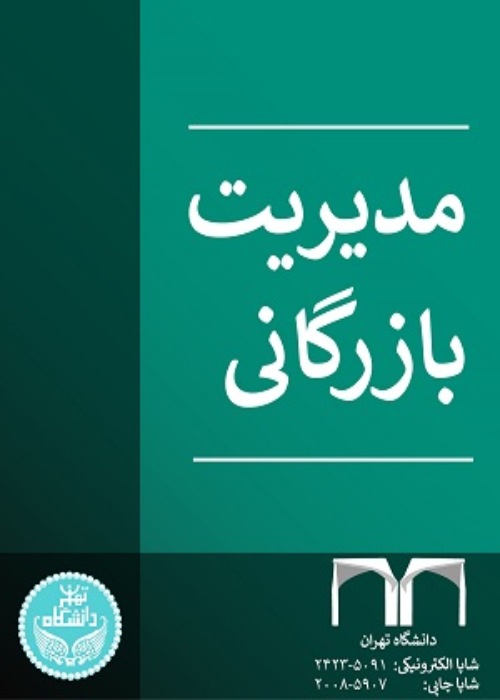Identifying the Dimensions of Personal Resilience Model of Iranian Startup Founders
Considering the high rate of failure among startups and the atmosphere of the Iranian startup ecosystem, as well as the economic-political crisis in recent years, lots of entrepreneurs starting their business face failure or serious crisis. Thus, investigating the dimensions of entrepreneurs' resilience and its nature among Iranian entrepreneurs is vital. Hence, the objective of this research is to identify the dimensions of the personal resilience of startup founders.
This research has a descriptive-exploratory orientation, inductive approach, and phenomenological strategy. Conducting in-depth interviews with 13 Iranian startup founders and carrying out thematic analysis, five main themes, 16 subsidiary themes, and 454 codes were extracted.
Based on the achieved results, the formation of personal resilience among entrepreneurs consists of five main themes: (1) Entrepreneur's characteristics: including personal characteristics and psychological capabilities, values and beliefs, entrepreneurial motivation, and skills and readiness for facing business adversities, (2) External support: including psychologically empowering factors and providing needed facilities by different sources of support for instance from a spouse, family, friends, co-founders, employees, investors, mentors, therapist, customers, and society, (3) Characteristics of failure: including costs of failure and causes of failure, (4) The process of forming resilience: including initial actions for improving mood, initial reactions, mental approaches and actions, person-related proceedings and work-related proceedings, and (5) After-failure growth: including psychological growth, attitudinal growth, work-related behavioral growth, and non-work-related behavioral growth.
This study presented a model of resilience formation from failure to shaping resilience, to after-failure growth. This model clarifies the dimensions of entrepreneurs' personal resilience in more detail by putting dimensions in three relatively distinct time intervals. It also discussed several factors in entrepreneurs' personal resilience in more detail, adding to the existing literature. The dual role of self-confidence is notable in this regard. Self-confidence and efficacy can strengthen one's resilience; however, if not realistic, such self-confidence can amplify the negative consequences of failure, as entrepreneurs cannot act as expected by themselves in the face of adversity. Another dual factor in personal resiliency is the bond between an entrepreneur and a business, which is usually referred to as parental love. Although this passion and love for the business advance them to persist in the business, it may blind the entrepreneur's unbiased analysis of the problems and challenges both in the internal and external environment, which may lead them to more business crises. The current study also emphasizes the high similarity between entrepreneurs' characteristics that strengthen one's resiliency, and the reported growth as a result of resilient coping with failure, in different aspects such as psychological capabilities, values and beliefs, attitudes, and behavioral improvements. It suggests that facing adversity and showing resilience toward failure, is, by itself, an important source of even more resilience. Finally, based on the findings, applicable suggestions on increasing the personal resiliency of entrepreneurs are presented, including the development of psychological capabilities, skills, and work/family/friends network and their means; learning mental and behavioral approaches toward business failure such as acceptance, mourning over the loss of failure, and avoiding denial; cultural attempts toward a better atmosphere in Iranian startup ecosystem by investors and other players in Iran's startup ecosystem such as looking at using psychotherapy counseling as a personal development attempt; and supports and infrastructures needed to improve resilience.
- حق عضویت دریافتی صرف حمایت از نشریات عضو و نگهداری، تکمیل و توسعه مگیران میشود.
- پرداخت حق اشتراک و دانلود مقالات اجازه بازنشر آن در سایر رسانههای چاپی و دیجیتال را به کاربر نمیدهد.



